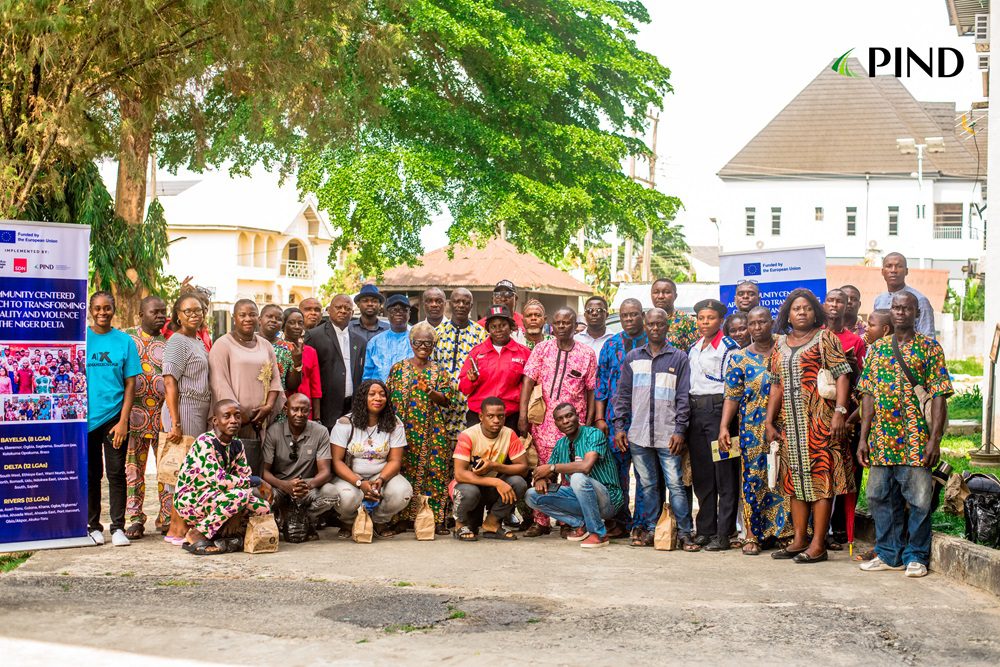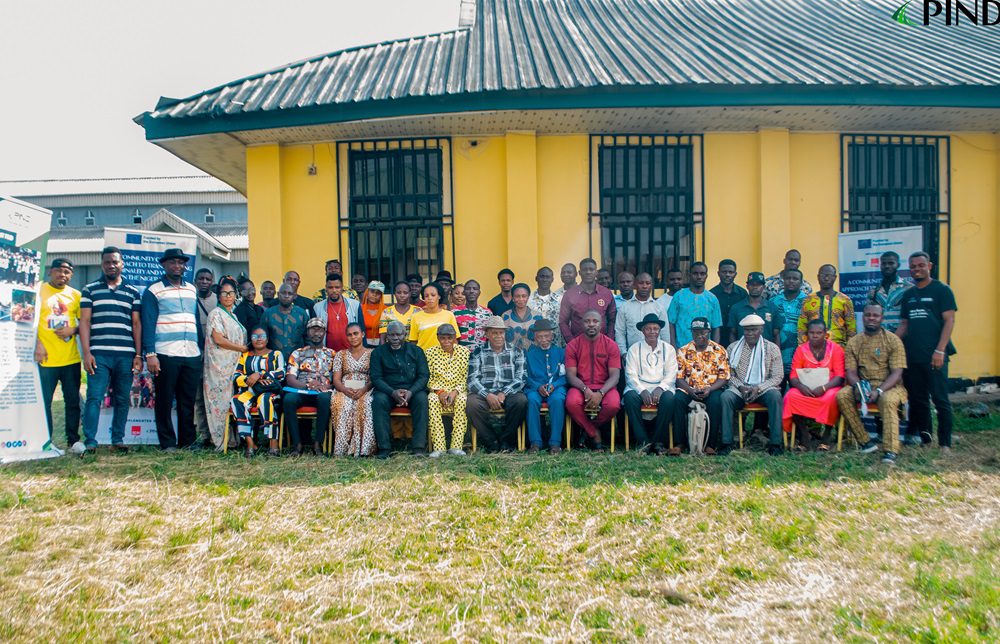To tackle the root causes of violence and foster sustainable peace in the Niger Delta, the Foundation for Partnership Initiatives in the Niger Delta (PIND) has implemented the Intercommunal Peace Initiative across Bayelsa and Delta States. This initiative builds on the outcomes of the Intercommunal Transformative Dialogue held in January 2025, which identified shared concerns among communities and developed targeted peace interventions. Key conflict drivers addressed include environmental degradation, social exclusion, drug abuse, oil bunkering, leadership disputes, and economic marginalization. By promoting community-led initiatives, the program fosters collaboration and reduces intercommunal violence, contributing to lasting peace in Bayelsa, Delta, and Rivers States.
As part of the European Union-funded project, A Community-Centered Approach to Transforming Criminality and Violence in the Niger Delta, implemented in partnership with Search for Common Ground (SFCG) and Stakeholder Democracy Network (SDN), this initiative is designed to strengthen security frameworks, curb criminality, and drive long-term stability across the region.
Strengthening Social Cohesion Through Dialogue and Stakeholder Engagement
Recognizing that sustainable peace requires multi-stakeholder collaboration, PIND facilitated the Intercommunal Peace Initiative from March 11 to 18, 2025, bringing together communities and key stakeholders to encourage dialogue and cooperation. This initiative engaged thirteen communities across seven local government areas and included representatives from various security agencies such as the National Drug Law Enforcement Agency (NDLEA), Nigeria Security and Civil Defence Corps (NSCDC), Nigerian Police Force, Jungle Task Force, National Orientation Agency (NOA), and National Youth Service Corps (NYSC). These interactions allowed security agencies and community members to jointly address security concerns and conflict prevention strategies tailored to local challenges.
By fostering direct engagement, PIND strengthened partnerships between communities and security agencies, laying the groundwork for a more collaborative approach to peacebuilding and community resilience in the Niger Delta.
Key Outcomes and Impact of the Initiative
The Intercommunal Peace Initiative has significantly contributed to conflict reduction and strengthened social cohesion by:
- Establishing joint mechanisms for violence prevention through cross-community collaboration.
- Increasing the involvement of youth and women in peacebuilding and leadership roles.
- Enhancing trust-building efforts via structured dialogues, cultural exchanges, and community-led initiatives.
- Improving conflict driver identification, such as environmental degradation, economic exclusion, and boundary disputes, enabling more targeted interventions.
Building a Resilient and Peaceful Niger Delta
PIND remains committed to fostering long-term peace in the Niger Delta by deepening community engagement and strengthening collaboration among key stakeholders. Through continuous support and capacity-building efforts, the initiative equips communities with the tools needed to address security challenges beyond the project’s duration. By investing in locally driven solutions and community-driven approaches, PIND is paving the way for a more stable and prosperous Niger Delta.










